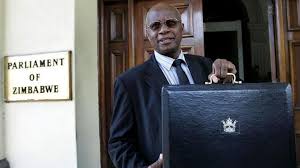zwnews.com Health Correspondent
The Minister of Finance in Zimbabwe, Patrick Chinamasa says poverty remains the country’s top enemy that is undermining the citizens’ well-being characterized by experiences of economic, political, social discrimination and disempowerment.
In his Interim Poverty Reduction Strategy Paper for Zimbabwe (IPRSP): 2016-2018, an approach to mitigate poverty, consistent with Zim Asset, Chinamasa says poverty further burdens the country’s health sector in a number of ways.
“The impacts of poverty on health, as perceived at provincial and district levels during the IPRSP broad consultations included high prevalence of preventable diseases, mental illness, stress, suicide and death.
“The impact increase in HIV/AIDS prevalence, high infant mortality, and malnutrition especially among children. Overall, health challenges faced by communities are viewed largely as an outcome of poverty, rather than a cause of it,” says Chinamasa.
He adds that people living with disability (PLWD) are often marginalised and belong to the poorest segments of society.
According to the 2012 Population Census27 there are 817 643 PLWD, giving a disability prevalence of 6.3 percent. Slightly over a tenth (12.5 percent) of the households had at least one member who was living with disabilities. More than three quarters (77.2 percent) of the PLWD reside in rural areas.
“Eradicating poverty is a top priority of Government‘s overall policy objective, which stems from the country’s development blue print, the ‘Zimbabwe Agenda for Sustainable Socio-Economic Transformation’ (Zim Asset), October 2013-December 2018,” the minister adds.
While Government has over the years, succeeded in halving the population in extreme poverty from 44 percent in 1995 to 22 percent by 2012, the general poverty had, as measured by the Total Consumption Poverty Line, remained relatively high, at over 70 percent.
He says the government has formulated the I-PRSP, focussing on specific short term measures, but with long term impact on the livelihoods of the population, targeting particularly, the vulnerable segments of our society.
In her address to mark the belated International Social Workers’ Day commemorations in Harare yesterday, Public Service minister Priscah Mupfumira echoed Chinamasa’s concerns on how poverty have impacted on the health sector.
She said despite the increased demand for social workers due to vulnerability that is compounded by poverty and natural disasters, the country have more than 600 unemployed social workers.
Meanwhile, writing in a publication for the Institute of Public Affairs for Zimbabwe (IPAZ) writers Tamuka Chirimambowa and Tinashe Chimedza described the current leadership of ZANU PF as the causes of the socio-economic and political problems in the country, describing them as the chief architects of poverty.
The two’s views are in sync with Chinamasa’s point that there is an element of political, social discrimination and disempowerment and they single out corruption by public officials as the pinnacle causing poverty.
“Their lifestyles of Zimbabwe’s political elites clearly define them as having monarchical tendencies and palace lifestyles,” wrote the two writers.
They criticised the raid on national coffers where the top brass have wiped millions of dollars meant for development like solar projects, and others, amid underhand dealings in tender allocations in which kickbacks are demanded.














